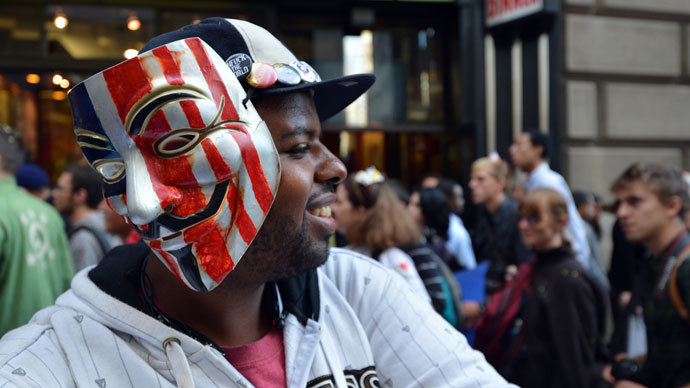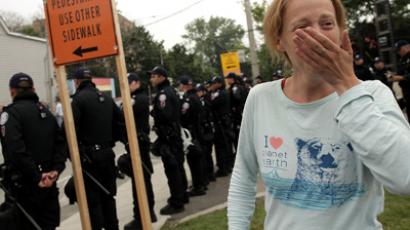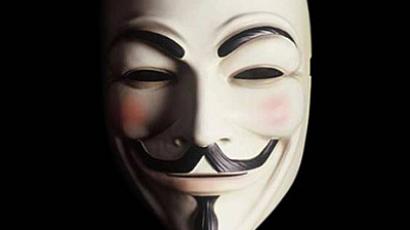Mask ban: Canada's veiled protesters face 10 years' jail

A new Canadian law forbids people from wearing a mask or covering their face during a riot or so-called “unlawful assembly” in the country. The law carries a maximum ten-year sentence for anyone convicted of physically concealing their identity.
Current Canadian law already forbids covering the face during a criminal act, although CBC reported that the statue, which criminalizes “disguise with intent,” generally applies to robberies. Police departments across the nation have called on lawmakers to lower the burden of proof for investigators trying to prove a mask was used for the sole purpose of hiding a demonstrator’s identity. Municipal authorities have also sought to stiffen penalties in the wake of recent violent riots in Toronto, Vancouver, Montreal and other cities.
The newly approved bill, institued Wednesday, expands police authority into unlawful assemblies, which is defined by Canadian law as a party of three or more people who “disturb the peace tumultuously” or “needlessly and without reasonable cause provoke other persons to disturb the peace tumultuously.”
The law does allow exceptions for those who are able to prove they have a “lawful excuse” for concealing their face, such as for religious or medical purposes. That person may also be subject to charges of participating in a riot, though, said bill author Blake Richards, a conservative MP who spoke with CBC.
“When trouble starts, people intent on criminal activity depend on being able to ‘mask up’ to conceal their faces with bandanas, balaclavas or other means to avoid being identified and being held accountable for their actions,” Richards said when the bill was initially tabled in 2011, seemingly implying that arresting someone with a mask on is prohibitively difficult for Canadian law enforcement. “Wearing a mask in these circumstances is an aggravating factor for their behavior that should be reflected in the law.”
The bill originally proposed imprisoning an offender for five years, but that sentence doubled to ten years after conservative lawmakers greeted the idea enthusiastically.
Privacy advocates and civil libertarians have opposed the bill since its inception, saying vague language like the “lawful excuse” exception leaves major questions unanswered.
“I think it is a more symbolic bill than it is a response,” said Natalie Des Rogers, general counsel with the Canadian Civil Liberties Association. “In our view, it shouldn’t come into law, there is no demonstrable need for this.”
“You cannot have a limit that is not prescribed by law, that is not clear to the citizens,” she continued. “We have the right to know what is expected of us. When there is vague language in the context where it infringes a freedom prescribed by the Charter, it becomes an unreasonable limit.”
Similar laws exist in Europe and in the US, where Occupy Wall Street demonstrators were apprehended for violating an anti-mask law that was enacted in 1845 to prevent farmers from protesting eviction by landowners.














